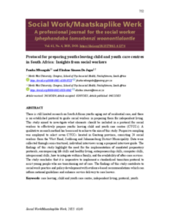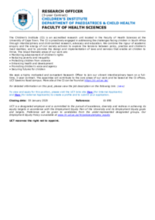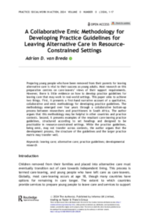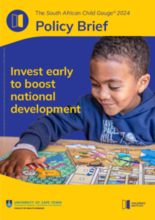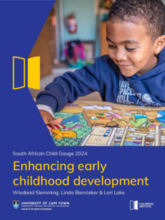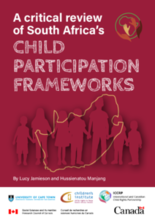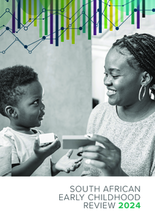childrens_living_arrangement
children_living_without_bio
Displaying 11 - 20 of 336
There is still limited research on South African youths aging out of residential care, and there is no established protocol to guide social workers in preparing them for independent living. This study aimed to investigate what elements should be included in a protocol for social workers to effectively prepare youths leaving child and youth care centres (CYCCs).
They are recruiting for a Research Officer to join their vibrant interdisciplinary team on a full-time, three-year contract.
You’re invited to the upcoming webinar Including support for informal kinship care in policy on 6 November at 13:00 UTC. In this webinar, panelists will explore and demonstrate how kinship care can be included in policy and supported without formalisation.
This qualitative study of cluster foster parents in Mpumalanga, South Africa, revealed that they are faced with extreme challenges such as lack of support, knowledge, and limitation of resources in fostering children with special needs.
This South Africa-based paper aims to provide practice guidelines for leaving care that would be useful in real-world settings.
This policy brief presents the key findings of the 2024 Child Gauge which focuses on early childhood development and the full book can be accessed at www.ci.uct.ac.za.
This 17th issue of the South African Child Gauge focuses attention on early childhood development – from conception until the start of formal school. It collates the latest evidence to reflect on progress, identify challenges and point the way forward.
This report interrogates the normative framework governing child participation in South Africa. It provides an analysis of international human rights obligations under the Convention on the Rights of the Child and the African Charter on the Rights and Welfare of the Child.
The South African Early Childhood Review 2024 tracks data on the status of children under six years.
The Children’s Institute (CI) is a multidisciplinary research unit located in the Faculty of Health Sciences at the University of Cape Town.

